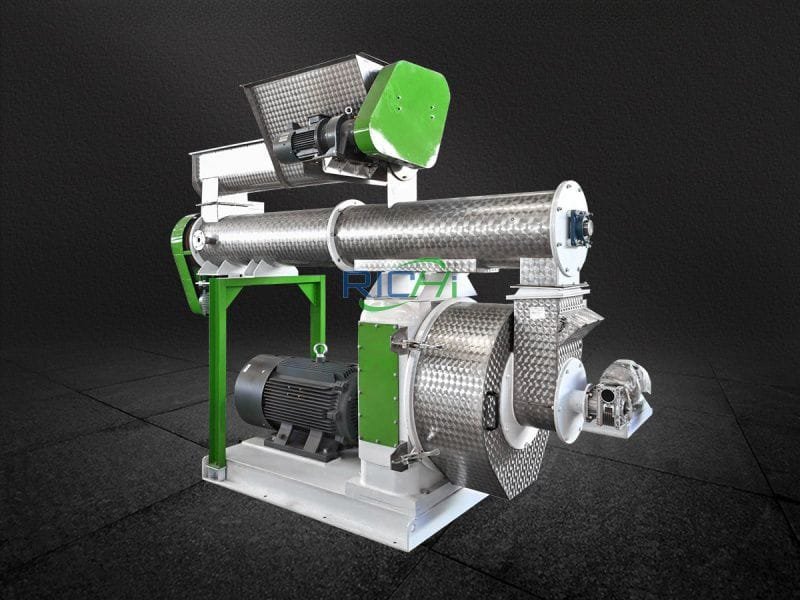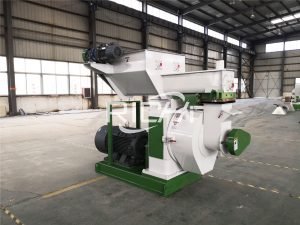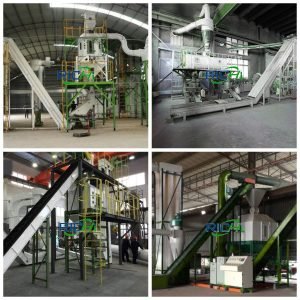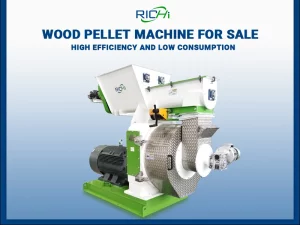Introduction
One of the most crucial components of a successful biomass pellet mill operation is the sourcing and management of raw materials. Biomass pellets, made from organic materials such as wood, agricultural residues, and plant-based waste, require a steady and sustainable supply of raw biomass feedstock to maintain consistent production. Effective supply chain management ensures that biomass pellet mills can meet the increasing demand for renewable energy while maintaining cost-effectiveness and sustainability. This article explores the key factors involved in sourcing raw materials for biomass pellet mills, as well as strategies for managing the supply chain efficiently.

1. The Importance of Raw Material Sourcing
The quality and availability of raw materials are essential for the production of high-quality biomass pellets. The feedstock used in biomass pellet mills must meet specific criteria, including size, moisture content, and consistency, to ensure efficient pelletization and optimal combustion properties.
a. Types of Raw Materials Used in Biomass Pellet Production
The most common raw materials for biomass pellet production include:
- Wood residues: Sawdust, wood chips, and wood shavings are widely used due to their high energy content and availability in the forestry and timber industries.
- Agricultural residues: Straw, corn stover, and rice husks are commonly used in regions where agriculture is the dominant industry.
- Grass and herbaceous materials: Switchgrass, miscanthus, and other perennial grasses can also be processed into pellets.
- Other organic waste: Food waste, paper, and cardboard can be converted into biomass pellets, though they require specific processing techniques.
Each type of feedstock has different characteristics that impact pellet quality, production efficiency, and the final product’s energy content. As a result, understanding the various types of raw materials and their properties is essential for pellet mill operators.
b. Key Factors in Raw Material Selection
When sourcing raw materials for biomass pellet production, several factors must be considered:
- Moisture content: Biomass feedstock typically needs to have a moisture content of around 10-15% to be suitable for pelletization. High moisture content can lead to inefficient pellet production and lower-quality pellets.
- Particle size: Biomass materials must be finely ground to create uniform pellets. The ideal particle size depends on the type of biomass and the specifications of the pellet mill.
- Consistency: Consistent feedstock ensures smooth operations and high-quality pellet production. Variations in raw material size, moisture content, or composition can affect the efficiency of the pelletizing process and result in lower-quality pellets.
2. Sustainable Sourcing Practices
Sustainable sourcing practices are essential for ensuring that biomass feedstock is available in the long term and that the environmental impact of biomass production is minimized. Responsible sourcing practices help protect ecosystems, preserve biodiversity, and support the development of local economies.
a. Forest Certification Programs
Many biomass pellet mills source raw materials from sustainably managed forests that are certified by organizations such as the Forest Stewardship Council (FSC). These certification programs ensure that the wood and forest products used in biomass pellet production come from well-managed forests that meet environmental, social, and economic sustainability standards.
Sourcing biomass feedstock from certified forests helps prevent deforestation and habitat destruction, supporting the long-term health of global ecosystems. It also helps consumers and stakeholders feel confident that the biomass energy produced is genuinely sustainable.
b. Agricultural Residue and Waste
In addition to wood, agricultural residues and waste are increasingly being used as biomass feedstock. These materials are often abundant and can be sourced from local farms and agricultural operations. Using agricultural waste helps reduce the environmental impact of traditional farming practices and provides an additional revenue stream for farmers.
Biomass pellet machines must carefully manage the sourcing of agricultural residues to ensure that it does not lead to unsustainable farming practices. For example, over-harvesting of crop residues can reduce soil fertility and harm the land’s long-term productivity.
3. Managing the Biomass Supply Chain
Efficient management of the biomass supply chain is essential for ensuring that biomass pellet mills can meet production targets and maintain a reliable supply of raw materials. The biomass supply chain involves several key stages, from raw material collection to transportation and storage.
a. Sourcing and Procurement Strategies
Biomass pellet mills need to establish strong relationships with suppliers of raw materials, including forest managers, farmers, and waste management companies. The procurement process involves identifying reliable sources of biomass, negotiating contracts, and managing the cost of raw materials.
A key challenge in raw material procurement is ensuring a steady and consistent supply of biomass. Biomass is a seasonal resource, with some materials only available during certain times of the year. Pellet mills must plan ahead to secure enough raw materials during times of abundance to cover production during periods of scarcity.
b. Transportation and Logistics
Transporting biomass raw materials to the pellet mill is a critical component of the supply chain. Biomass materials are often bulky and heavy, making transportation costs a significant factor in overall production expenses. Pellet mills must optimize transportation routes, minimize fuel consumption, and ensure timely deliveries to avoid production delays.
In some cases, pellet mills may need to invest in their own transportation infrastructure or partner with logistics companies to streamline the delivery process. Additionally, advanced tracking systems can help monitor the movement of raw materials, ensuring that supplies are delivered on time and at the right quantity.
c. Storage and Inventory Management
Efficient storage and inventory management are essential for ensuring that biomass materials are available when needed. Biomass feedstock must be stored properly to prevent moisture buildup and degradation, which can negatively affect pellet quality. In many cases, biomass is stored in large warehouses or silos to protect it from the elements.
Pellet mills must carefully manage inventory levels to ensure that raw materials are available for continuous production. This involves tracking the quantity of biomass in storage, forecasting demand, and adjusting procurement strategies as needed to avoid stockouts or excess inventory.
4. The Challenges of Biomass Raw Material Sourcing
Despite the growing demand for biomass pellets, sourcing raw materials for pellet mills presents several challenges. These challenges include fluctuations in raw material prices, competition for feedstock, and logistical issues.
a. Price Volatility
The price of biomass feedstock can fluctuate significantly based on supply and demand, seasonal factors, and market conditions. For example, a shortage of wood residues or agricultural waste can lead to price increases, making it difficult for pellet mills to maintain competitive pricing.
To mitigate price volatility, biomass pellet mills may need to establish long-term contracts with suppliers or explore alternative sources of raw materials. Diversifying feedstock options can help reduce reliance on any single material, thus protecting the pellet mill from price fluctuations.
b. Competition for Feedstock
As the demand for biomass energy grows, there is increased competition for raw materials. This can be particularly challenging in areas where biomass is sourced from forests or agricultural operations, as these materials are also in demand for other industries, such as paper and cardboard production, animal bedding, and bioenergy.
Biomass pellet mills must compete with other industries for feedstock, which can lead to supply shortages or higher prices. Mills that focus on sourcing from waste streams, such as food or agricultural residues, may have an advantage in avoiding direct competition for more traditional raw materials.
5. The Future of Biomass Raw Material Sourcing
The future of biomass raw material sourcing will be influenced by advancements in sustainable forestry, agricultural practices, and waste management. As the biomass pellet industry continues to grow, the sourcing of raw materials will become more efficient and diverse.
a. Integrated Supply Chains
The development of integrated supply chains, in which raw materials are sourced, processed, and delivered in a coordinated manner, will help improve the efficiency of the biomass pellet industry. Collaboration between forest managers, farmers, and pellet mills will be crucial for ensuring a sustainable and reliable supply of feedstock. (Related post: biomass pellet project)
b. Advancements in Biomass Collection and Processing
New technologies in biomass collection and processing will help reduce the cost and complexity of sourcing raw materials. For example, advanced harvesting equipment, waste conversion technologies, and improved storage systems will allow pellet mills to source feedstock more efficiently and sustainably.
Conclusion
Sourcing raw materials for biomass pellet production is a complex but critical part of the biomass pellet mill operation. Effective sourcing strategies, sustainable practices, and efficient supply chain management are essential for ensuring that biomass pellet mills can meet growing global demand for renewable energy. As the industry continues to evolve, the integration of sustainable sourcing practices and technological advancements will play a key role in the future of biomass energy production.


